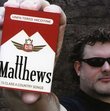| All Artists: Beethoven, Herreweghe, Royal Flemish Philharmonic Title: Beethoven: Symphonies Nos. 1 & 3 [SACD] Members Wishing: 0 Total Copies: 0 Label: Pentatone Original Release Date: 1/1/2008 Re-Release Date: 4/29/2008 Album Type: Hybrid SACD - DSD Genre: Classical Styles: Historical Periods, Classical (c.1770-1830), Symphonies Number of Discs: 1 SwapaCD Credits: 1 UPC: 827949031366 |
Search - Beethoven, Herreweghe, Royal Flemish Philharmonic :: Beethoven: Symphonies Nos. 1 & 3 [SACD]
![Beethoven: Symphonies Nos. 1 & 3 [SACD]](https://nationalbookswap.com/cd//l/59/9959/6169959.jpg) | Beethoven, Herreweghe, Royal Flemish Philharmonic Beethoven: Symphonies Nos. 1 & 3 [SACD] Genre: Classical
|
Larger Image |
CD DetailsSimilar CDs
|
CD ReviewsA refined, affectionate First yoked to a light, fluffy Eroic Santa Fe Listener | Santa Fe, NM USA | 01/11/2010 (4 out of 5 stars) "I am a fan of Herrewedghe's Baroque recordings; he seems both musical ans sensible, putting expression before ideology when it comes to HIP practices. It's true that he's an overreacher, and his period readings of Bruckner have seemed awkward at best. But early Beethoven has always been a sharp weapon in the hands of advocates who want to push the Baroque past the age of Napoleon. It certainly works well in Sym. 1, and here we see Herreweghe's superiority over predecessors like NOrrington and Gardiner. First, he's more innately musical and talented, so that he doesn't hide behind externals like rushed tempos, hectic phrasing, and rigidly fixed rhythms. Those common qualities in early HIPser Beethoven are absent here.
As a result, Sym. 1 breathes as it should, smiles at times and displays a good deal of charm. This is far and away the best HIP Beethoven I've heard. It can stand up to any standard reading that I know. Herreweghe's Felmish orchestra is unknown to me, but they are fine, and PentaTone's sound (heard in two-channel stereo) is clean, clear, and natural. Tempo is quite secondary to me, but I will note that at times Herreweghe is quite moderate, as in the first movement and Scherzo, but his Andante cantabile in the second would be an Allegro to any traditionalist. It's saved by being so naturally phrased. but I think it's hard to credit that Beethoven would write a symphony without a slow movement of any kind. The test of any Beethoven First, for me, comes in the finale, which begins with a Haydnesque joke that almost every traditional conductor misses. Herreweghe shows a light touch here, but I didn't smile because I don't think he did. In any case, the rhythms are infectiously springy and for once the violins without vibrato sound sweet and affectionate. The acid test comes in the Eroica, however, which must acknowledge Beethoven's incredible leap into another world of heroism, romance, intellectual rigor, and indomitable strength. Will Herreweghe pour us yet another glass of HIP weak tea? I'm afraid so, although to his credit his Eroica is just as charming, light, and cheerful as his First. The work isn't supposed to be, and only the scherzo and the beginning of the finale seem to capture a hint of the real spirit of this great revolutionary work. But then, HOP Beethoven is hobbled when ti comes to grand statements, since the orchestra is small and the strings incapable of depth and power, particularly on the lower end. Herreweghe builds his sound from the top down instead of the bottom up, a fatal problem in the Marcia funebre, with its weighty, groaning double basses that should be like granite underfoot. Instead, we get a souffle, and although souffles are nice, they don't tend to be very tragic." |

 Track Listings (8) - Disc #1
Track Listings (8) - Disc #1

